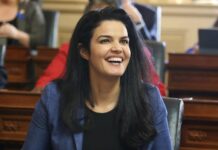On May 5th, UVa’s College of Arts and Sciences faculty voted in favor of making comprehensive changes to the undergraduate curriculum. This is the first time in more than 40 years that significant modifications will be made to the core curriculum.
The new requirements reshape the idea of a liberal arts education in order to prepare students for the rapidly changing world. The pilot curriculum has three distinct components that will focus on connections across disciplines: Engagements, Literacies, and Disciplines.
Engagements are designed to help students develop intellectual sensibilities by examining four ways people learn: Aesthetic Engagement, Empirical and Scientific Engagement, Engaging Difference, and Ethical Engagement. By introducing this framework to first-semester First Years, administrators hope to guide students in the acquisition of knowledge throughout their four years.
The Literacies component will provide courses designed to create fluencies in three areas: World Languages, Rhetoric of the 21st Century, and Quantification, Computation, and Data Analysis. Students will be required to study one foreign language as well as a first-year writing course that includes written, oral, and digital assignments.
Finally, Disciplines will introduce students to a wide range of perspectives grounded in disciplinary thinking as defined under seven categories: Artistic, Interpretive and Philosophical Inquiry; the Chemical and Physical Universe; Cultures and Societies of the World; Historical Perspectives; Living Systems; Social and Economic Systems; and Science and Society.
The proposal passed with an 83% majority vote and reflected high levels of faculty voter turnout; 210 voted in favor and 41 opposed. The referenda also created a College Fellows board to oversee implementation. This rotating committee of Arts & Sciences faculty will be drawn from academic programs and charged with designing and teaching Engagement courses.
The pilot test of the new curriculum will begin in the Fall of 2017, applying to the class of 2021 and beyond. Students currently enrolled will continue with the existing College requirements.
The first year will be treated as a test period. After assessing the impact of the updated curriculum, the faculty will vote to confirm, extend, or cease the pilot study in April 2018. Dean of Arts and Sciences Ian Baucom expressed great excitement about the prospect of an innovative curriculum.
“I know the prospect of curricular innovation has been of great interest to the Board and to A&S alumni in general, particularly as it relates to the significant, positive impact this will have on our students and faculty, our teaching and research missions, our fundraising efforts, and our shared future together,” Baucom said. “From the new writing requirement that will enable all UVA students to become better writers, to the innovative first-year experience of the “Engagement” courses, to the way students will be able to make sense of the world through the new quantification, computation, and data analysis requirement, we are building a 21st century liberal arts and sciences program that will benefit generations of students to come.”
This recent revision efforts date back to the spring of 2011, when a group of Arts & Sciences faculty came together to study the current curriculum and imagine ways to reshape it to better prepare students for the future. When Dean Baucom assumed his role in the summer of 2014, he immediately endorsed this endeavor through a deep level of consultation with the faculty.
“I’ve been looking forward to this moment since my arrival on Grounds,” Baucom said. “I couldn’t be more thrilled by this news.”
















